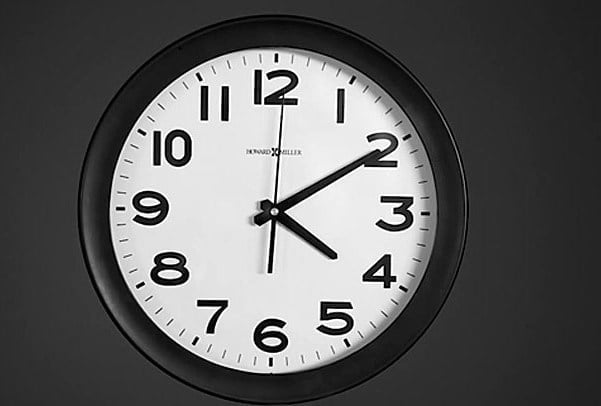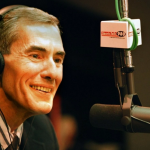When was the last time you truly showed your appreciation to your audience? I’m not talking about fielding a phone call, responding to a tweet, or saying hello and posing for a photo at a remote. I’m talking about taking the time to make a personal connection, listening to what your listeners had to say, and making sure they know how valuable they are to you.
I read a few stories this past December about a broadcaster in Washington DC named Ken Beatrice. He had just passed away at the age of 72 and a few notable personalities were remembering him and what made him special. I had never heard him on the air but what I read about him instantly made me a fan.
In one article, Beatrice was quoted as saying “I don’t have a show without callers, and I treat each one just as if I’d invited them into my house as my guests — really, they are my guests.”
Truth be told, quotes like that often sound great but aren’t always backed up. But then I read something that Kevin Sheehan shared which simply blew me away. He said “As a kid listening to him, if you called in and you were on hold when the show ended, he would actually call you at your house when the show was over. You’re sitting at the house after the show and the phone rings and it’s Ken Beatrice on the line saying, ‘Hey, Kev! Sorry you didn’t get on, but I just wanted to call.’ And he would sit there and talk to you forever.”
Beatrice was known for his deep sports knowledge and kindness to child callers and he’d give out his office phone number on the air and field additional phone calls after his show. Some may think that’s crazy but you can also say it’s pure genius. If a personality is willing to invest their time to form a deeper bond with the audience, they’re going to be rewarded for it. And when Ken Beatrice passed, the tributes that were presented in print, radio and television proved that his approach made an impact.
Scott Van Pelt of ESPN was one of those people who remembered him fondly. He told the Washington Post “He called my house. I didn’t make it on the show, but he called me up. And it was the craziest thing. You picked up the phone and there’s this incredibly distinctive voice on the other end, and you just can’t believe that he would do that. He was a giant.”
When people can vividly recall the influence a person had on them 20-30 years later, that speaks volumes about the connection that’s been formed. You may not always agree with the opinion of a host on the air, but few listeners tune out a broadcaster who does everything possible to connect with the audience and show them they’re appreciated.
I thought back to the past 10 years of operating stations all across the country and the numerous great personalities I’ve had a chance to work with and asked myself “how many broadcasters would actually call back their listeners afterwards?” I could only think of a few who would have gone to such lengths.
And that doesn’t mean they’re wrong for not wanting to do that. Many on-air hosts like to cut the chord when the show is done and save the rest for the following day. There’s nothing wrong with that. But in a world where your success is measured by 20-30 meters in a major market, it pays dividends to have as many relationships as possible. If all it costs you is your time, then it’s worth building listener loyalty after the on-air light goes off.

But when will you have the time? After all, you host a 4-hour show, and have prep work, a commute, side projects and a family to spend time with.
Well, those who succeed in this industry treat it as a career, not a job. It’s what they live for and wake up and go to sleep thinking about. If you want to do it for a long time, and make enough money to feed your family and treat them to a good life, then it pays to put the time in to grow your bond with the audience. Few operators part ways with broadcasters who possess a large loyal following.
Secondly, this is your full time career. You get out of it what you put into it. If you want to work 20-30 hours at your craft, be prepared to be compensated long-term as an individual who invests 20-30 hours per week into it. Most bosses won’t watch the clock to see how much time you put in, but it’s easy to see who’s going the extra mile to make a difference.
The next time you’re complaining about the hours you put in, think about the workload of the professional athletes you’re talking about on your program. In the case of a football player, they easily invest 70-80 hours per week over the span of 6 days (they have off on Tuesday’s during the season) and take a heavy physical beating. The last time I checked, radio hosts don’t get physically assaulted talking into a microphone. The battles they face are mostly mental.
Football players though have to study film, practice, work out, get treatments, and somewhere in between all of it, find time for other commitments such as meeting with the media, helping the team’s marketing projects, getting involved in local community charities and events, and interacting with fans.

One player in particular who really impresses me with the way he conducts himself on and off the field is Houston Texans Defensive End J.J Watt. He’s a guy many kids look up to, and for good reason, because he sets a great example. It’s one I felt was worthy enough of educating my son about and he’s now a proud owner of a #99 jersey.
I was reading last year about how J.J responded after being given a contract extension which would pay him $100 million dollars. Some players who have been in that situation have let the money and their new found fame change them. But not J.J. After he signed his record-breaking deal, he woke up the next morning at 3:05 a.m. and drove to the Texans facility so he could work out in the Texans’ weight room.
When asked if he was worried that his franchise player would be affected by the big money contract, Texans Owner Bob McNair said “He’s going to do nothing but get better. We normally wouldn’t do this at this stage but we felt that his performance had been so outstanding, his attitude and work ethic so great, and he’s become such a role model for everyone on our team that we felt that he deserves special consideration.”
While his performance on the gridiron is elite and worthy enough of large compensation, it’s the extra effort he gives off the field that makes it easy for the Texans to want to step up to the plate and reward him, even when they don’t have to. Check out this video that Watt filmed with a young fan who was having trouble with kids in his school.

Then there’s the sign of respect and admiration that he has for the men in uniform. This goes back to his upbringing and not losing sight of who he was before he became a world famous NFL superstar. When a team’s best player carries himself this way, it’s special. It paints the organization in a classy way and makes it hard to not root for a guy who reaches out to his fans to show them he appreciates their support.
So you’re asking “what does JJ Watt’s good standing in the community have to do with my radio show?” A lot actually.
He works a full time career that is physically demanding and constantly under the microscope. He gets paid a lot of money to do it and deals with pressures that are much larger than anything we face in the radio industry. It’d be easy to direct his entire focus to the football field and ignore the numerous outside requests for his time, but because he’s grounded, and recognizes the importance of connecting with the people who show up to support him each Sunday, the extra effort is made without resistance.
Because J.J Watt accepts being a role model and showing through his actions that he’s more than just an exceptional football player, it’s helped the Texans become more valuable and it’s resulted in Watt’s own brand growing as well. In 2015 he had the top selling jersey among all defensive players, and his star has blossomed in the endorsement arena too, landing opportunities with Verizon Wireless and Papa John’s among others.

The lesson to be learned here is that despite having a job which occupies the majority of his time, J.J Watt makes it a point to connect with his fans and give back. And because he takes that approach, it’s led to bigger paydays and a reputation he and his family can be proud of. Fans may get upset with him if he misses a tackle or fails to sack a quarterback, but they’ll never stop cheering him on because they know he’s a genuine guy who values his supporters.
I’m not going to tell you that you should call your audience after the show like Ken Beatrice did, or follow J.J Watt’s lead and send pizza’s to the local firehouse and police department. Those were decisions each of them made and that’s what makes them unique. The key is to find your own way to form a deeper connection with your audience.
For some, it might be in the form of scheduling a weekly Twitter chat. To others it may mean spending an hour after each remote to have face to face conversations with the audience. One host (Chad Doing) I worked with in San Francisco would give out his personal cell phone number On-Air and on Twitter and welcome his listeners to text or call him about anything on the show. That type of gesture sends a powerful message to the audience. Even if they want to root against you, they can’t help but put down their guard when you invite them in.
Maybe this isn’t something you feel comfortable doing, and if you don’t, that’s fine. Everyone has a different approach and comfort zone. But as I stated earlier, you can’t go wrong when you develop deeper loyalty with your audience, and when that day comes when the ratings aren’t as high, it never hurts to have a legion of supporters in your corner. It could be the difference in continuing this career or having to go find a job.

Jason Barrett is the President and Founder of Barrett Media since the company was created in September 2015. Prior to its arrival, JB served as a sports radio programmer, launching brands such as 95.7 The Game in San Francisco, and 101 ESPN in St. Louis. He also spent time programming SportsTalk 950 in Philadelphia, 590 The Fan KFNS in St. Louis, and ESPN 1340/1390 in Poughkeepsie, NY. Jason also worked on-air and behind the scenes in local radio at 101.5 WPDH, WTBQ 1110AM, and WPYX 106.5. He also spent two years on the national stage, producing radio shows for ESPN Radio in Bristol, CT. Among them included the Dan Patrick Show, and GameNight.
You can find JB on Twitter @SportsRadioPD. He’s also reachable by email at Jason@BarrettMedia.com.











